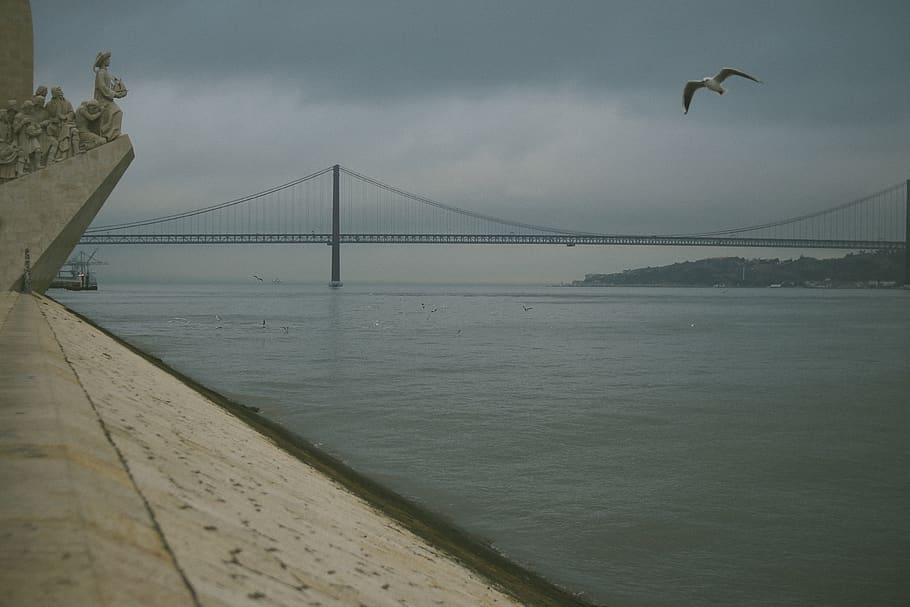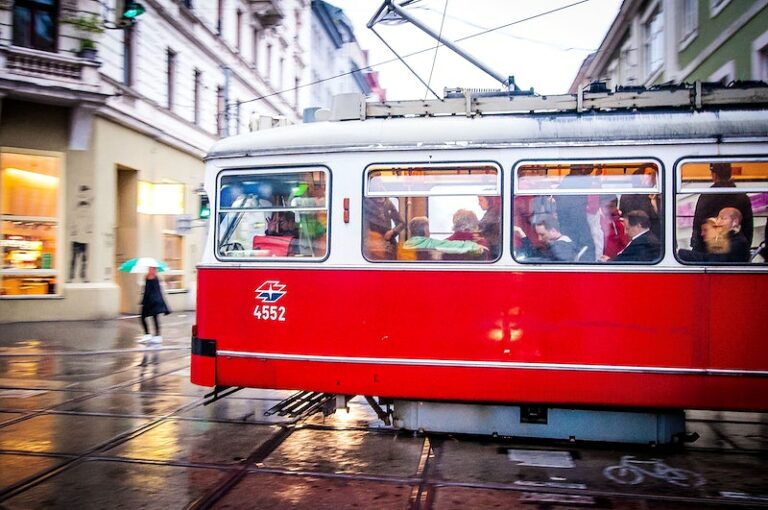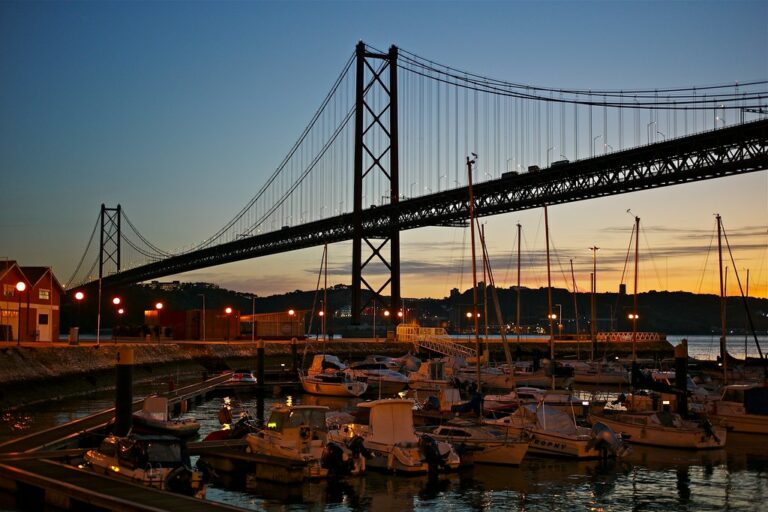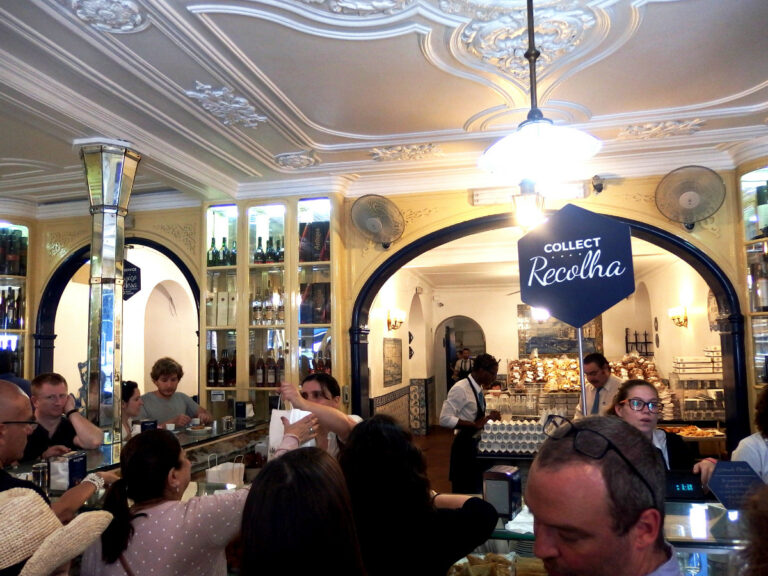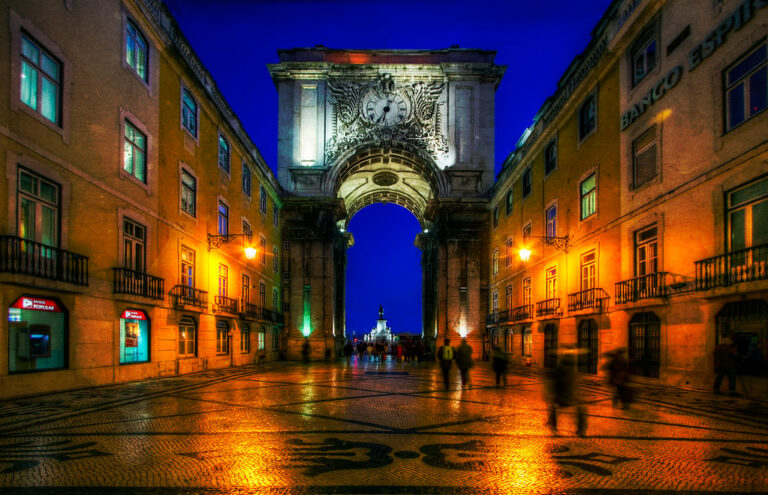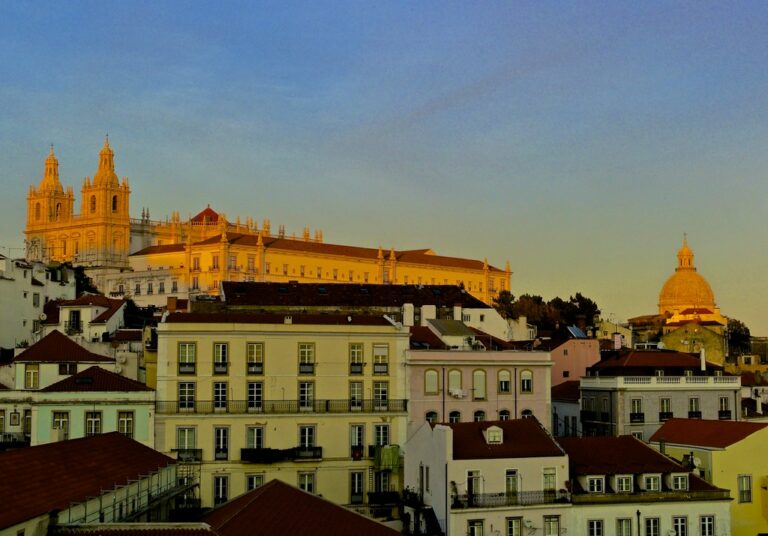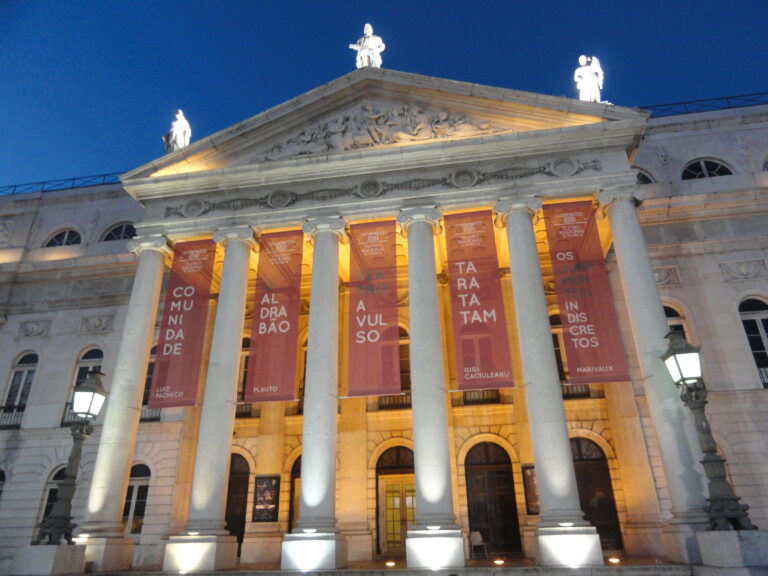Are you planning your next vacation to the Portuguese capital? Then, planning a visit to the iconic Belém district in Lisbon is a must.
You can find some top Belem tourist attractions from the Belém Cultural Center, famous monuments, and Portuguese history here.
So, before planning a trip to Lisbon, please familiarize yourself with my Belém tourist guide for 2024.
13 Things to Do in The Belem District
1. Belém Tower (Torre de Belém)
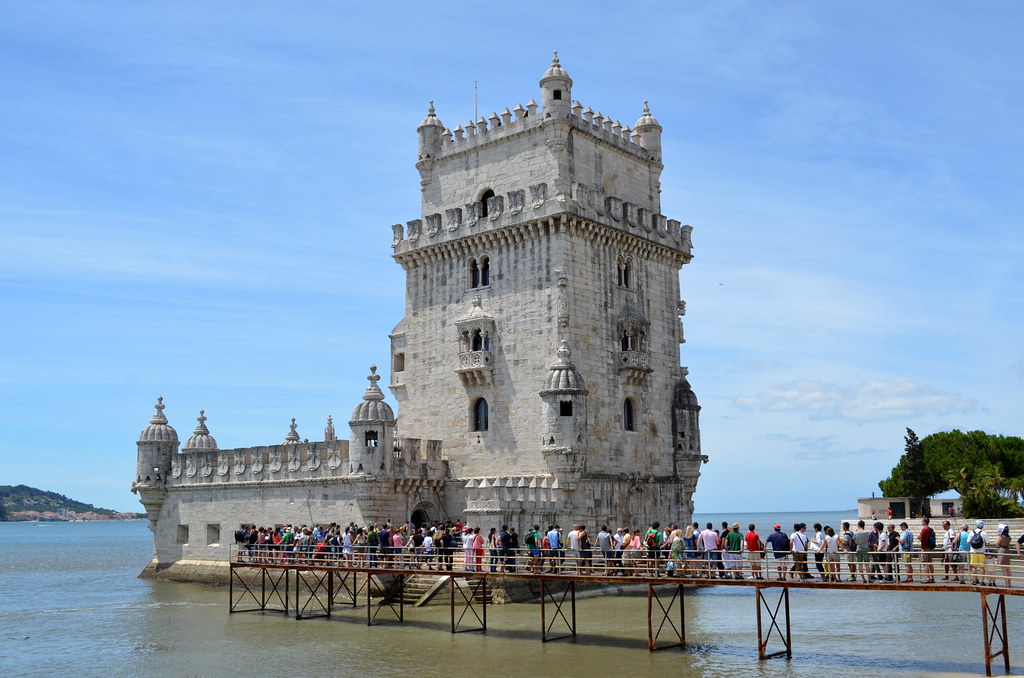
Built in the early 16th century, Belém Tower served as a fortress defending the harbor’s entrance.
Torre de Belém’s ornate Manueline architecture and strategic location make it an iconic symbol of Portugal’s maritime power, especially with Vasco de Gama.
Torre de Belém has many things to explore in the surroundings, and the top view is spectacular.
Many people ask why there is a rhino on the Belém Tower. The rhinoceros sculpture on the Torre de Belém in Lisbon symbolizes King Emanuel l power.
He commissioned the tower in the early 16th century. At the time, rhinos were considered exotic animals, and the sculpture showcased the king’s wealth and power.
It is said that the rhino represents the global reach of the Portuguese empire during the Age of Discovery.
Hot Tip🔥: Check out the complete guide on the Belém Tower here.
2. Jerónimos Monastery (Mosteiro dos Jerónimos)
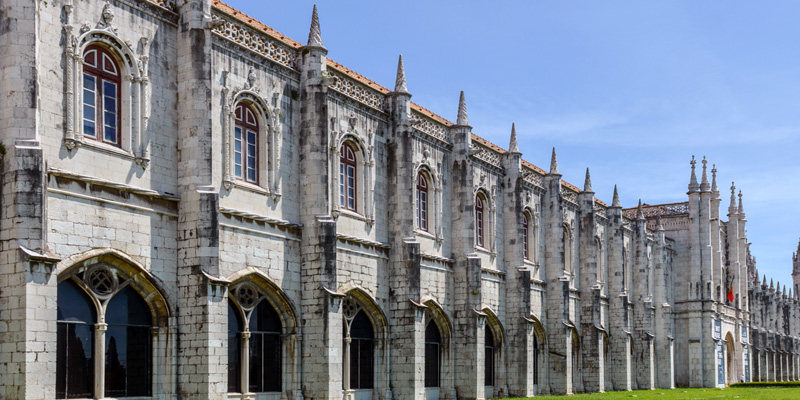
This grand monastery, commissioned by King Manuel I, was constructed to commemorate Vasco da Gama’s successful voyage to India.
Its Manueline-style architecture and intricate detailing make it a UNESCO World Heritage site and a must-visit cultural landmark.
Hot Tip🔥: Learn more about Jeronimos Monastery before visiting it.
3. Praça do Comércio (Commerce Square)
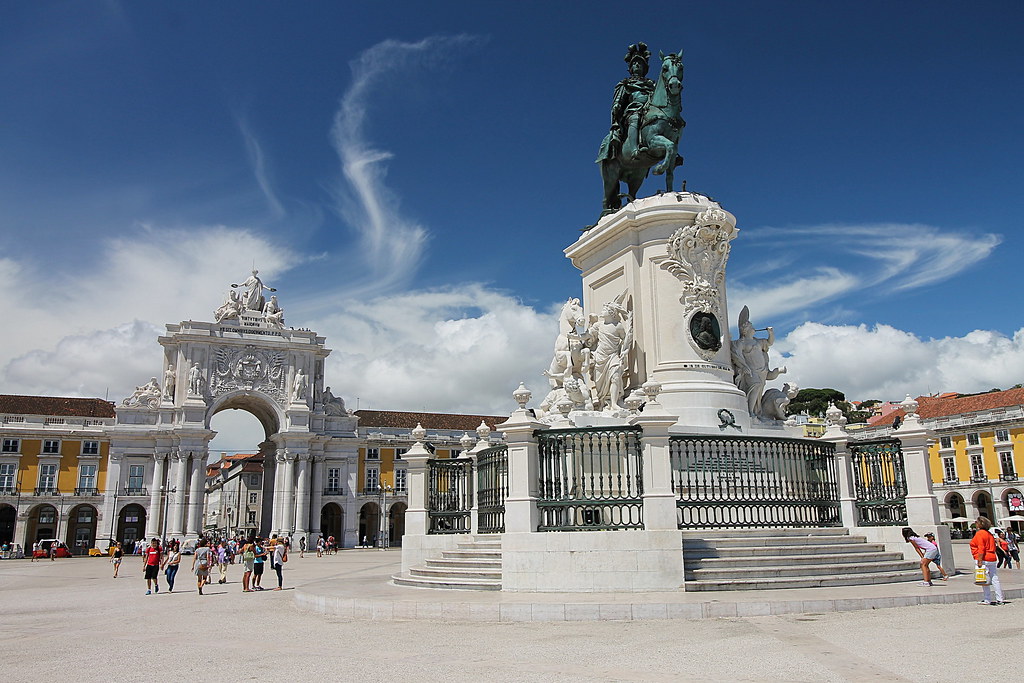
Although not originally in Belém, Commerce Square is a major tourist attraction. Due to its historical significance, it is often visited with Belém.
It was once the main maritime entrance to Lisbon and the starting point for explorers. Notable buildings, including the Ribeira Palace, surround the square.
4. Padrão dos Descobrimentos (Monument to the Discoveries)
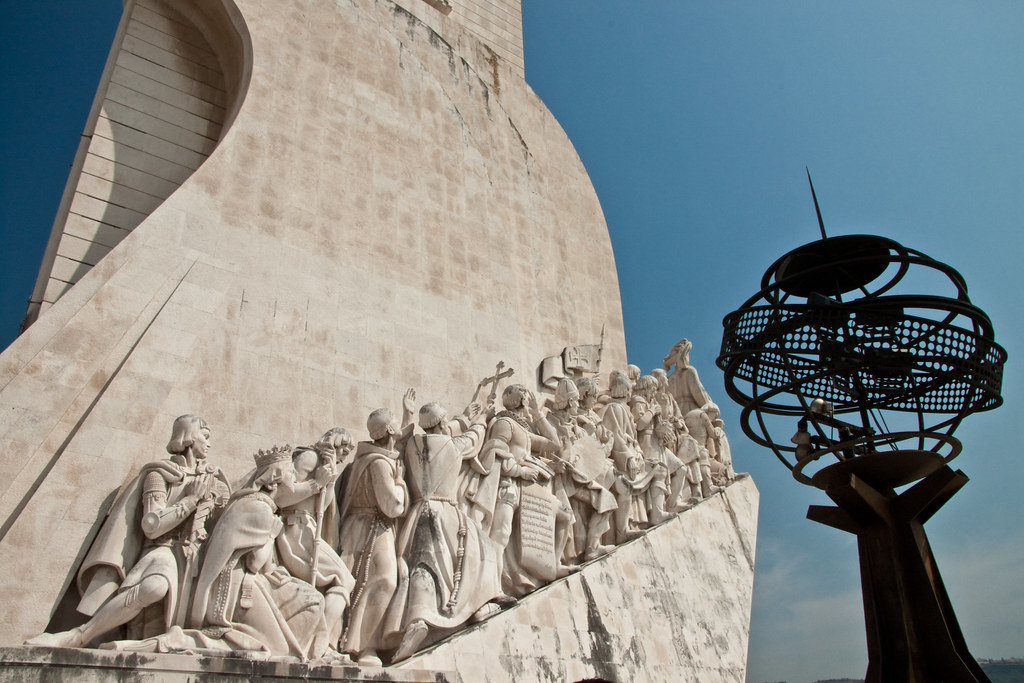
The Monument of Discoveries was built in 1960 to commemorate the 500th anniversary of Prince Henry the Navigator’s death.
It celebrates Portugal’s Age of Discovery, especially with Vasco de Gama. It features larger-than-life sculptures of key figures from that era and offers panoramic views of the river and surrounding areas.
The monument is an architectural masterpiece for a fabulous Lisbon Instagram spot.
5. Pastéis de Belém Lisbon
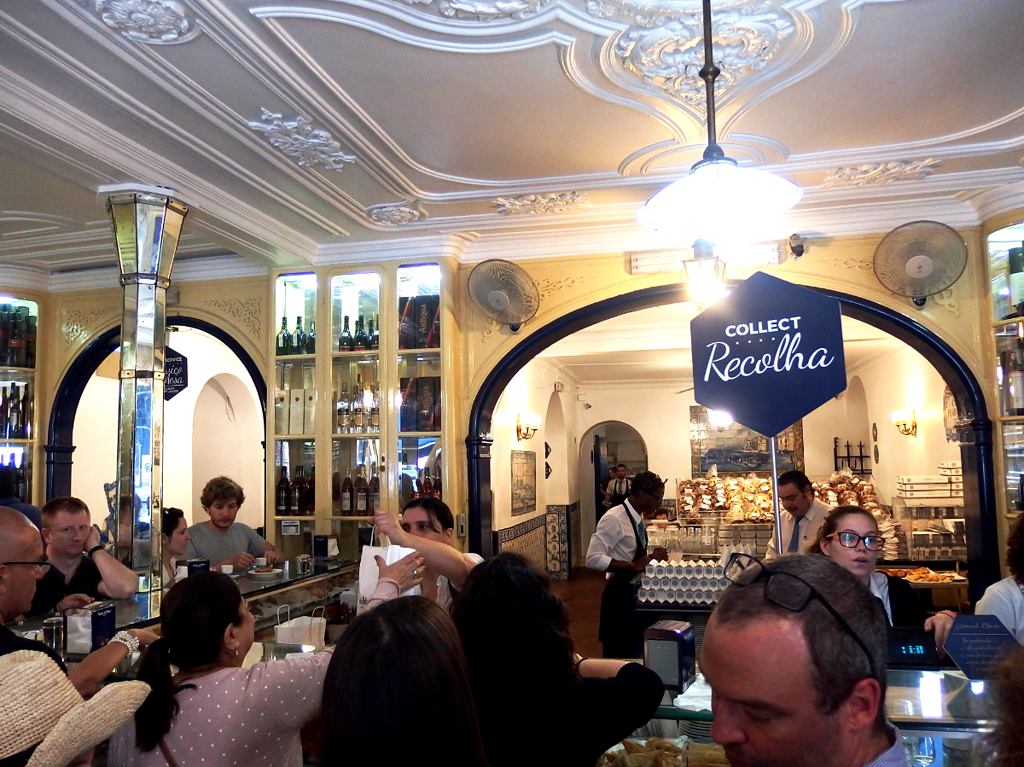
While not a historical monument, Pastéis de Belém Lisbon is a culinary landmark established in 1837.
The bakery is renowned for its delicious flaky pastry custard tarts known as pastéis de nata.
It’s a delightful stop to savor a taste of Portuguese culinary history; believe me, the flaky pastry is delicious.
6. Centro Cultural de Belém (Belém Cultural Center)
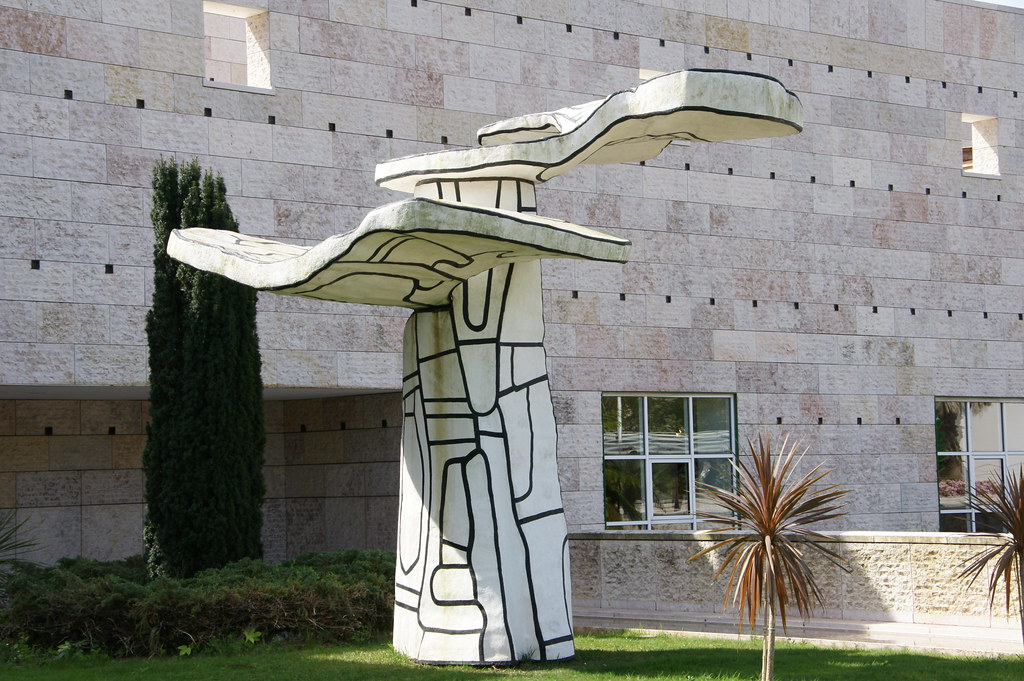
Another major tourist attraction is the Centro Cultural de Belém (Belém Cultural Center). This modern complex is the hub of cultural activities in Lisbon.
It hosts diverse events, including art exhibitions, music concerts, theater performances, and conferences.
With its contemporary architecture, the center contributes to the dynamic cultural scene of the Belém district, offering visitors a chance to engage with the arts in various forms.
7. Museu Nacional dos Coches (National Coach Museum)
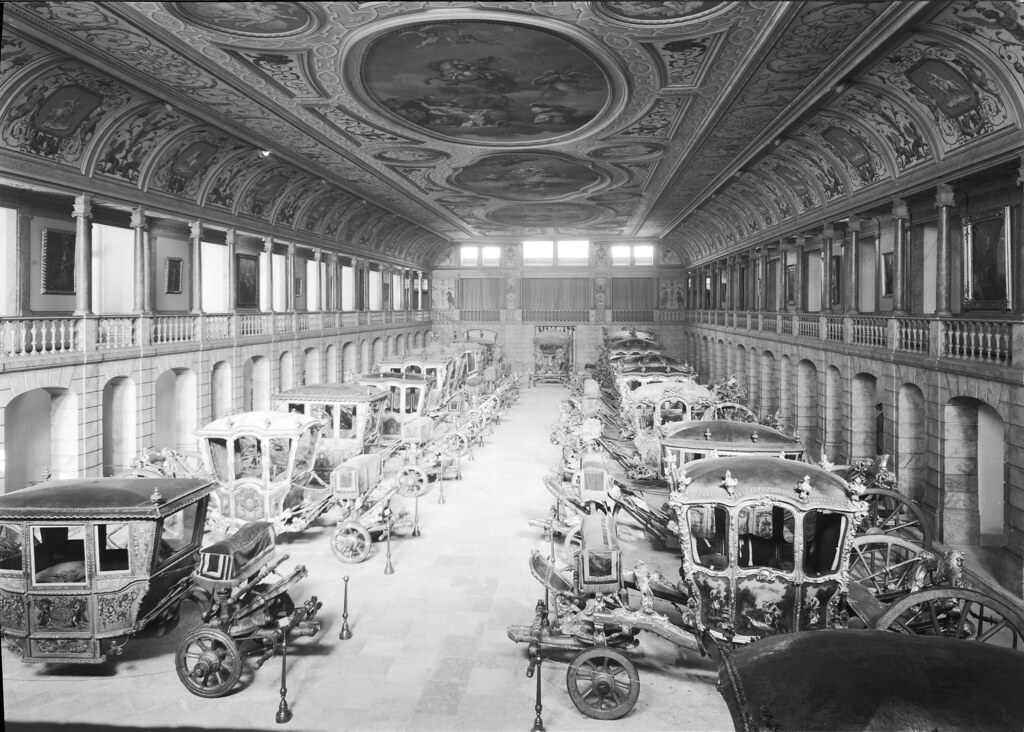
This captivating museum showcases an extensive collection of royal carriages and coaches.
Housed in a modern building, the museum allows visitors to explore the evolution of transportation used by Portuguese royalty.
The ornate and meticulously preserved carriages glimpse the opulence of bygone eras, making it a unique and intriguing cultural experience.
8. Palácio de Belém (Belém Palace)
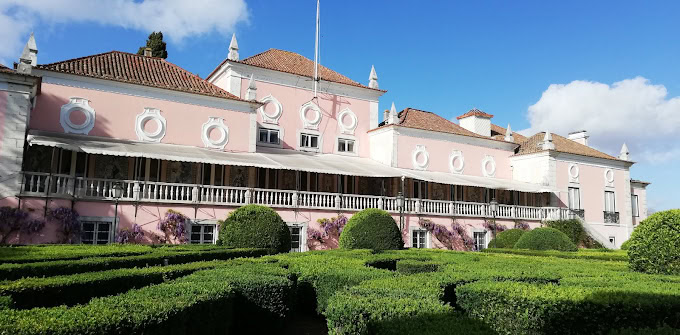
The Palácio de Belém, or Belém Palace, is the official residence of the President of Portugal.
Set amidst beautifully landscaped gardens, the palace is an architectural gem that has witnessed historical events and political decisions.
While the interior is not open to the public, the surrounding gardens are often accessible, offering a serene environment for visitors to enjoy a peaceful stroll.
9. Museu de Marinha (Naval Museum)
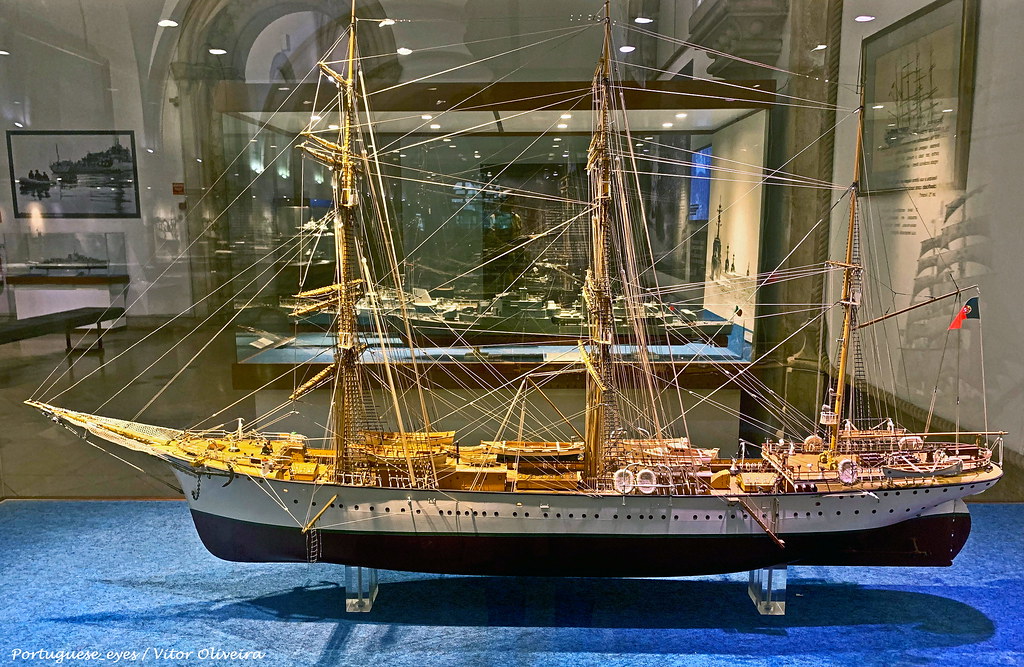
The Museu de Marinha, or Navy Museum, is dedicated to Portugal’s maritime history.
The museum is near the Jerónimos Monastery and features an extensive collection of maritime artifacts, ship models, and historical navigation instruments.
It provides an insightful journey through Portugal’s maritime past, highlighting its exploration and naval achievements.
10. Jardim da Praça do Império (Garden of Empire Square)
The Jardim da Praça do Império is a picturesque garden surrounding the Jerónimos Monastery.
With its well-manicured lawns, beautiful fountains, and unique geometric patterns, the garden offers a peaceful retreat.
It’s an ideal spot to relax, take a stroll, or enjoy the serene ambiance, which contrasts with the historical monuments nearby.
11. Monumento aos Combatentes do Ultramar
This Monument honors the bravery and sacrifice of those who served in the Portuguese Overseas War.
The striking structure commemorates the soldiers who fought in the overseas territories and is a poignant reminder of Portugal’s historical involvement in conflicts.
The Monument is a testament to the courage and dedication of those who contributed to the nation’s history during this challenging period.
12. MAAT
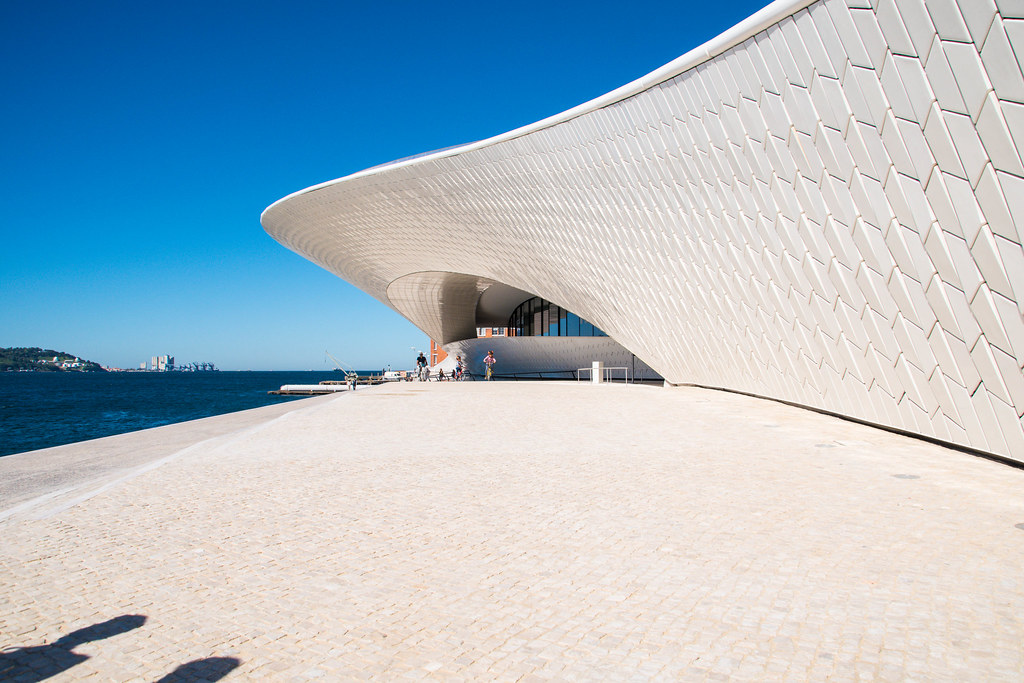
The MAAT (Museum of Art, Architecture, and Technology) in Lisbon is a remarkable contemporary structure that has become an iconic feature of the city’s skyline.
The museum is adjacent to a former power plant, now an exhibition space. The building’s undulating shell-like design allows visitors to walk on top of it, providing stunning views of the river and the 25 de Abril Bridge.
The museum’s exhibitions showcase the connection between art and technology, featuring works by both national and international artists.
13. National Archaeology Museum
The Jerónimos Monastery’s former dormitory has been converted into a museum, which houses a unique collection of ancient artifacts discovered across Portugal.
The collection boasts a variety of treasures, including jewelry, sculptures, and mosaics, all of which date back to the country’s Celtic and Roman past.
Visitors can also find a small but impressive exhibit of ancient Egyptian artifacts generously donated to the museum.
The museum offers a rare opportunity to explore the rich history of Portugal and its connections to other ancient civilizations.
Worthy Note: The museum is temporarily closed. I will keep you updated.
Best Viewpoints in Belem
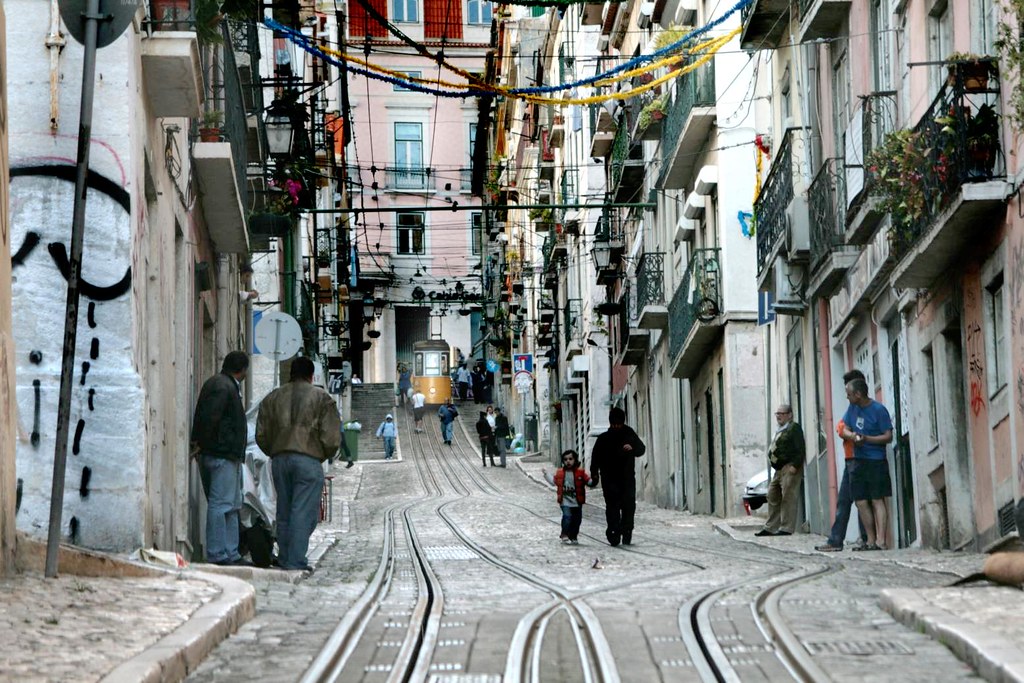
While it is not mainly known for its elevated viewpoints like some other districts in Lisbon, it offers scenic spots that provide beautiful perspectives of the surrounding area. Here are a few places where you can enjoy captivating views:
Padrão dos Descobrimentos (Monument to the Discoveries): The terrace at the top of Padrão dos Descobrimentos offers panoramic views of the Tagus River, the 25 de Abril Bridge, and the surrounding area. It’s an excellent vantage point to take in the landscape.
Belém Tower: While not a traditional viewpoint, the tower’s strategic location at the harbor entrance provides unique perspectives of the river and the coastline. Exploring the various levels of the tower can offer different views.
Jardim da Praça do Império (Garden of Empire Square): The gardens surrounding the Jerónimos Monastery provide a peaceful environment and open spaces. While not elevated, it’s a lovely place to relax and enjoy the surrounding architecture.
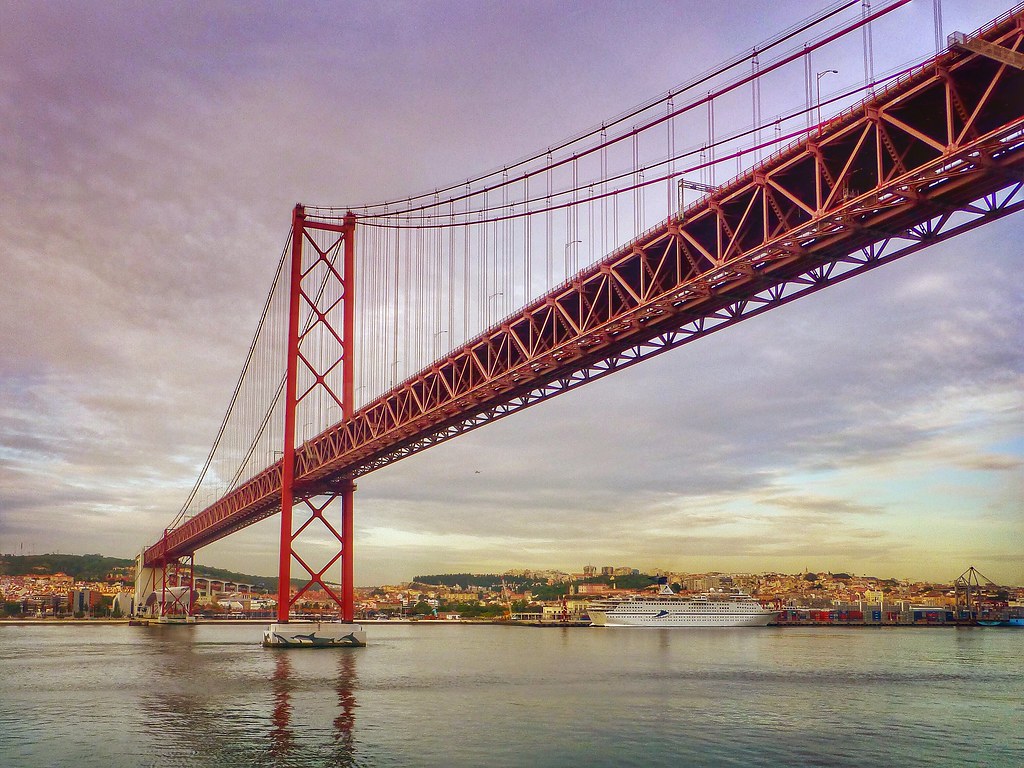
Tagus River Waterfront: The waterfront along the Tagus River offers a pleasant promenade with river views, passing boats, and the 25 de Abril Bridge. Strolling along the riverbank provides a different perspective of the area.
Walking Map of Belem
I’ve made a map of all the locations worth visiting in Belem. I wouldn’t recommend visiting them all in one day, but you can visit many daily.
Of course, the museums take some time to explore, and you should give yourself that time; you’ll discover some incredible parts of Portugal’s history.
How to Reach Belem
To the west of the Baixa district and central Lisbon, you find Belem. The easiest way to reach Belem is with Tram 15, departing at Praça da Figueira and passing through the Praça do Comércio.
The journey takes 15 minutes, and a tram ticket costs €3. However, you can buy a 24-hour unlimited public transport ticket for €6.80. But you can only purchase it from a metro station.
The tram 🚋 stop for Belem is Belem-Jeronimos, found next to the Jeronimos Monastery. Still, a note is that this tram 15E can get crowded. For alternatives, take bus 714 or 728, which connects Belem to the Baixa district.
A bus ticket will cost around €2.
The Easy Lisbon Quiz
Ready to test your Lisbon knowledge?
I’ve made an easy Lisbon quiz with 5 questions. Let’s see if you can get them right. 🤞
Belém History
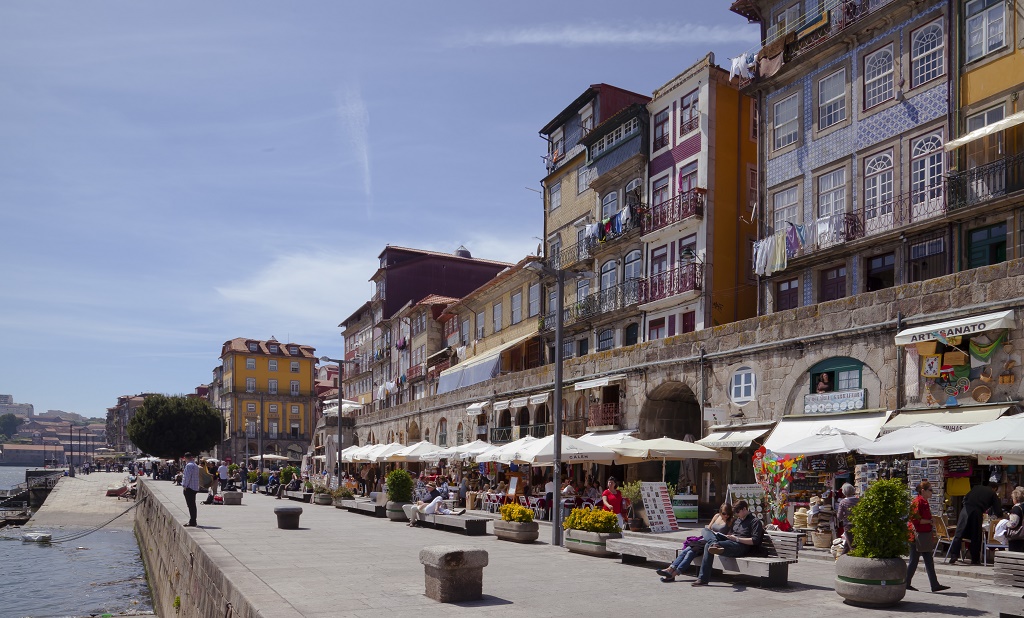
Along the Tejo Estuary banks to the west of Lisbon, you find Belém. It is one of the most iconic tourist attractions in the world, including Mosteiro dos Jeronimos, Padrão dos Descobrimentos, and Torre de Belem.
The district has historically been significant in Portugal’s maritime and exploratory endeavors. This district in Lisbon has played a pivotal role in the country’s history, especially during the Age of Discovery in the 15th and 16th centuries.
During this period, Belém was a bustling port and the starting point for many maritime expeditions that set sail to explore and trade with distant lands.
From here, renowned Portuguese explorers, such as Vasco da Gama and Ferdinand Magellan, embarked on their journeys that would lead to the discovery of new sea routes and territories.
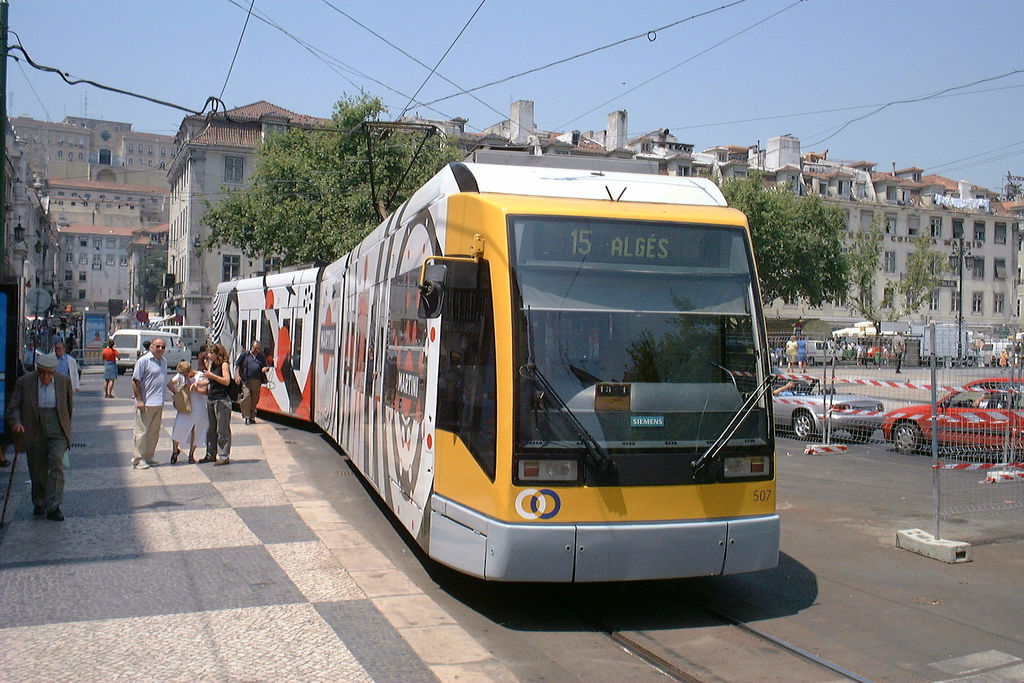
All these great explorers opened the way to sea routes like Brazil, India, and East Africa, bringing wealth that led to the famous Jerónimos Monastery. Here, you can find parks, plazas, and riverside walks, and all are easily reached with the Tram 15E route.
Planning On Going To Lisbon?
I’ve created a trip planner where you enter the number of days you’re going and what activities you want to do.
Based on your input, you then get an entire vacation planned with ideas.

Challenges While Exploring
Compared to Alfama, Belem’s layout is more spacious without the narrow and winding streets. The major landmarks are relatively spread out, making it easier to navigate.
While it attracts many tourists, especially around popular attractions like the Jerónimos Monastery and Belém Tower, it is generally less densely populated than Alfama. This can make the overall navigation experience less crowded.
It is well-connected by tram, bus, and train services, making it convenient for visitors to explore. The tram line 15E, for example, connects the district with the city center.
The major landmarks, such as the Jerónimos Monastery andPadrão dos Descobrimentos, are visible from a distance, providing clear points of reference.
Staying in Belem
Belem is one of the four most incredible, beautiful places to stay when visiting Lisbon. You are close to major tourist attractions and can enjoy a scenic waterfront along the Tagus River.
Furthermore, you can enjoy the culinary scene by eating traditional custard tarts. The district is less crowded than the city center, which is always bustling with people.
The public transportation system connects you to the city center and other parts of Lisbon, including Belém International Airport. Likewise, you can find a range of accommodations to suit your lifestyle.
Here are the best things to do in Lisbon In July 2024
I’ll send you a list of the best things to do in July and every month moving forward from today.
It’ll be based on my personal experience of living and traveling around Lisbon. A lot of hidden gems.
Nightlife in Belem
The nightlife offers a more relaxed and refined atmosphere than some bustling districts in Lisbon. The district comes alive in the evening with a blend of cultural experiences and charming venues.
You can enjoy the serene ambiance of riverside cafes, offering a perfect setting to unwind and appreciate the historic surroundings. Some establishments, especially those near the waterfront, may extend their hours, providing a tranquil spot for an evening drink.
Additionally, select cultural events and performances may occur in venues like the Centro Cultural de Belém, adding an artistic flair to the night.
While it may not have a vibrant club scene, its nighttime allure lies in the enchanting views, cultural engagements, and the opportunity to experience Lisbon’s history under the soft glow of streetlights.
How Safe is the Belém District in Lisbon
It is generally considered a safe district in Lisbon. It has a reputation for being a peaceful and well-maintained area that focuses on historical and cultural attractions.
Yet, like any urban area, it’s advisable to remain vigilant and take standard safety precautions. During the daytime, it is a popular tourist destination with a steady flow of visitors exploring its landmarks and museums.
The area around the major attractions is well-patrolled and secure. The scenic waterfront and gardens also contribute to a pleasant and secure environment.
In the evening, the district retains its tranquility. While it may not have a bustling nightlife scene compared to other Lisbon districts, it offers a charming ambiance for an evening stroll along the river or a visit to a local eatery.
As with any travel destination, be aware of your surroundings, keep an eye on personal belongings, and use well-lit and populated areas, especially at night. Overall, Belem is considered a safe and inviting district for visitors to explore and enjoy.
The Advanced Lisbon Quiz
You’re now at the advanced Lisbon quiz with more difficult questions. No one gets every question right, so don’t beat yourself up on it. Good luck.
Wrap-Up: Visiting The Belem District in Lisbon
Visiting the Belem district in Lisbon promises a journey through the rich history and cultural tapestry.
With iconic landmarks like the Jerónimos Monastery, Belém Tower, and the Monument to the Discoveries, you’ll delve into Portugal’s Age of Discovery. The tranquil riverside ambiance and charming gardens offer a serene retreat.
Explore the past at the Museu Nacional dos Coches, indulge in delectable pastries at Pastéis de Belém, and embrace the arts at the Centro Cultural de Belém.
While Belem may not have a vibrant nightlife, its evenings are enchanted by the soft glow of streetlights and the historic allure. Safety is generally not a concern, making it an inviting tourist destination.
Remember to embrace the relaxed atmosphere, appreciate the views along the Tagus River, and savor Belem’s graceful blend of history and modernity.
